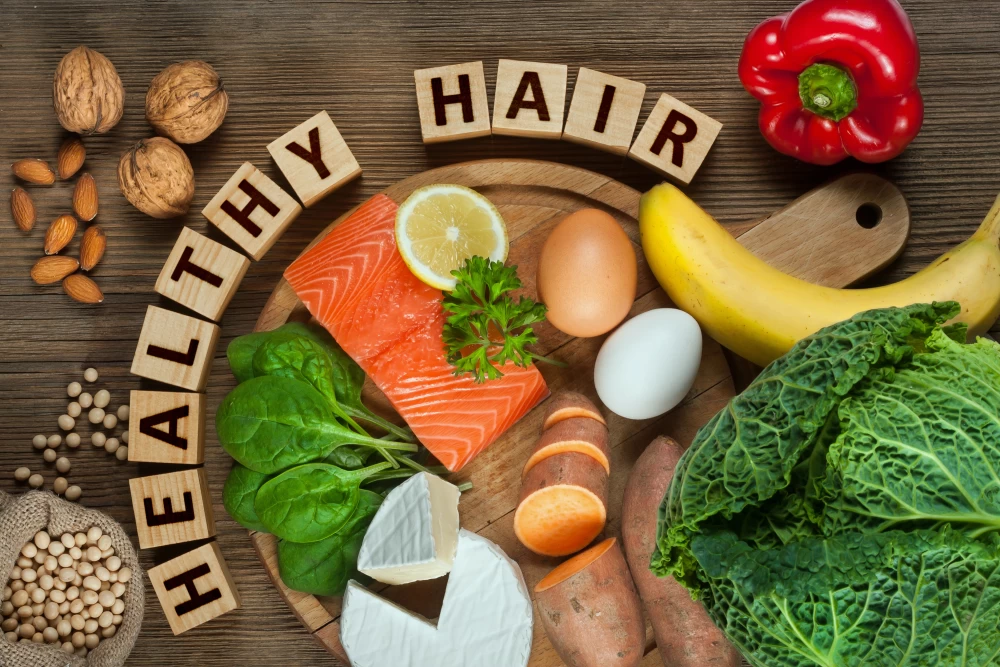
- 13th December 2023
Table of Contents
Paying attention to the internal factors that affect hair health is just as important as external hair care routines when it comes to maintaining a lush and healthy mane. Diethylstilbestrol (DHT), a hormone linked to alopecia, is one such component. Discover six nutrient-rich foods that naturally block DHT and promote healthier, more resilient hair in this blog post. We'll also look at how DHT contributes to hair loss.
1. Pumpkin Seeds: The Power of Zinc
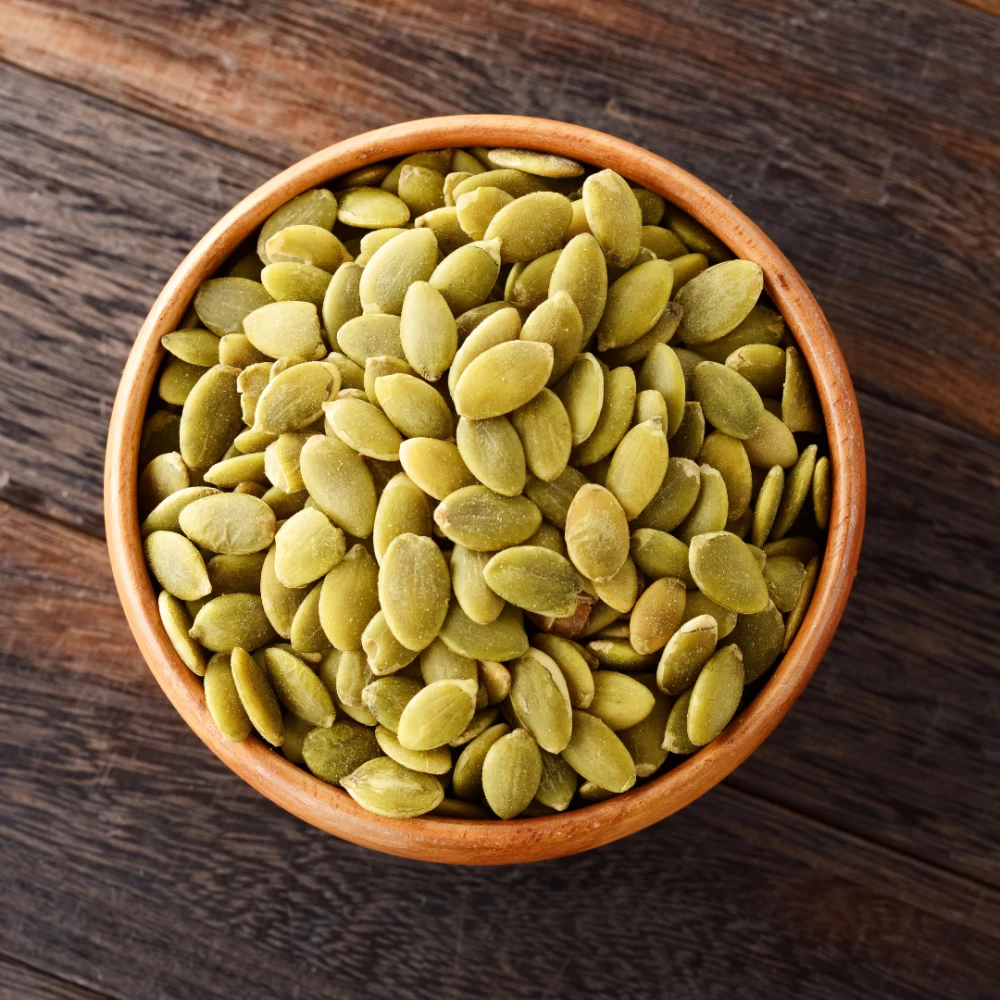
Pumpkin seeds stand out as nutritional powerhouses, particularly in the context of hair health. They are rich in zinc, a mineral known for its DHT-blocking properties. Zinc helps regulate hormone levels, including DHT, and plays a pivotal role in maintaining the health of hair follicles. Including a handful of pumpkin seeds in your daily diet can contribute to a zinc boost that may aid in preventing excessive DHT production.
According to the expert, pumpkin seeds are an excellent source of several micronutrients, including vitamins A, B, and C, as well as magnesium, phosphorus, iron, and copper. Pumpkin seeds are an excellent source of zinc, a mineral that is essential for healthy hair growth and maintenance. Supports protein synthesis, encourages cell division, and aids in hormone regulation. To create new hair follicles, these steps are necessary. Zinc, which is present in pumpkin seeds, promotes stronger and healthier hair growth.
2. Green Tea: A DHT-Inhibiting Elixir
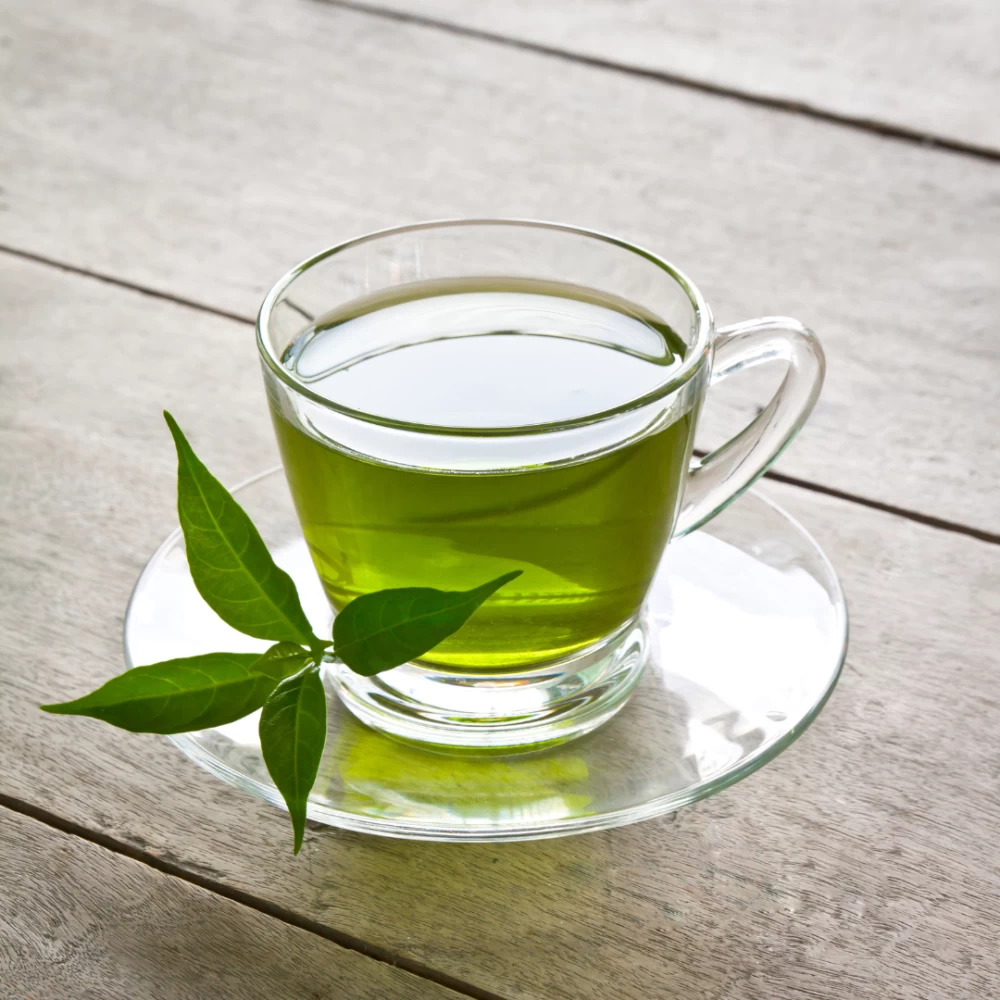
Green tea, celebrated for its antioxidant properties, also holds promise as a DHT-inhibiting elixir. Epigallocatechin gallate (EGCG), a potent antioxidant found in green tea, has been linked to lower levels of DHT. Regular consumption of green tea not only supports overall health but also provides a natural defense against the hormone imbalances that contribute to hair loss.
Green tea's epigallocatechin gallate (EGCG) may suppress hormones that cause hair loss and stimulate hair follicles, therefore preventing hair loss.
Green tea, or an extract of it, is an ingredient in a number of hair care products. To get the most out of these products, rub them into your scalp and hair roots. To enhance your consumption of antioxidants, try drinking one or two cups (240-480 ml) of green tea daily.
3. Saw Palmetto: A Natural DHT Blocker
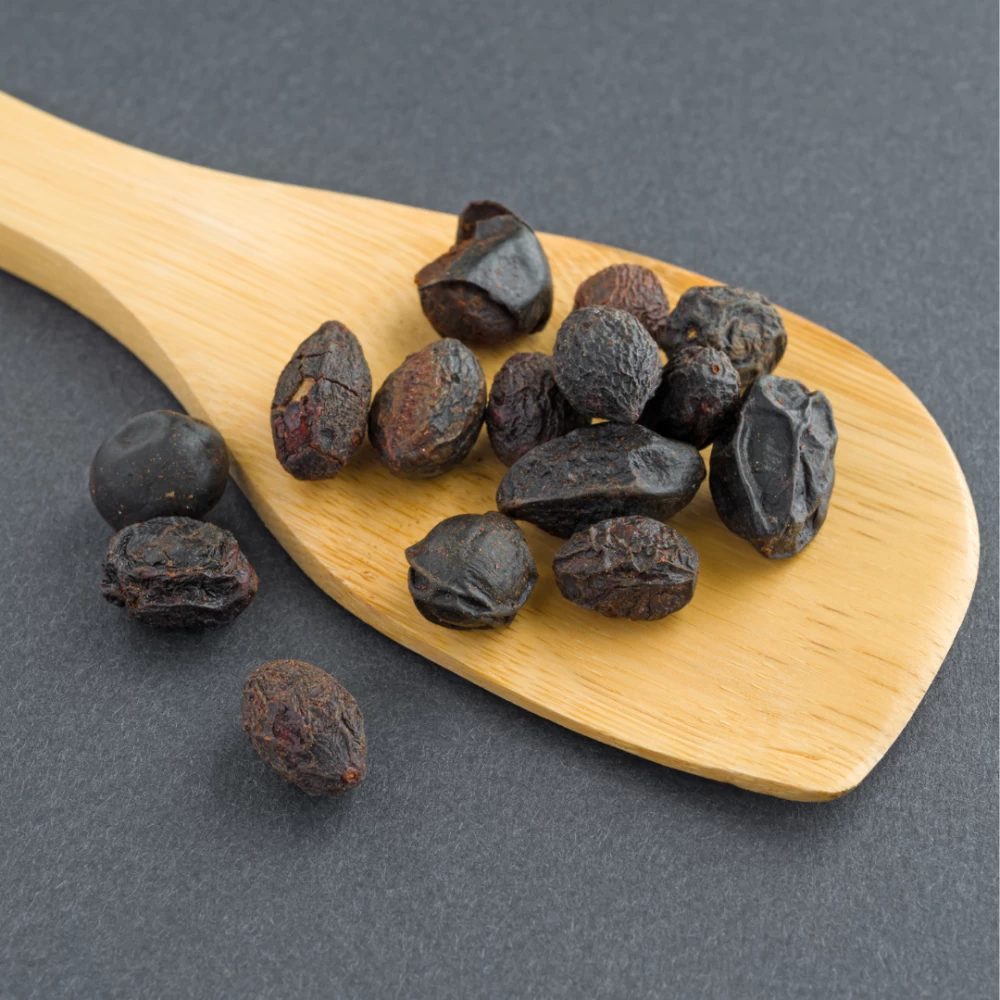
Saw palmetto, derived from the fruit of the Serenoa repens plant, has gained recognition for its potential as a natural DHT blocker. Research suggests that saw palmetto may inhibit the enzyme responsible for converting testosterone into DHT. Integrating saw palmetto into your diet, whether through supplements or as part of a holistic approach to nutrition, could be a strategic step in promoting hair health.
4. Fatty Fish: Omega-3s for Follicular Fortitude
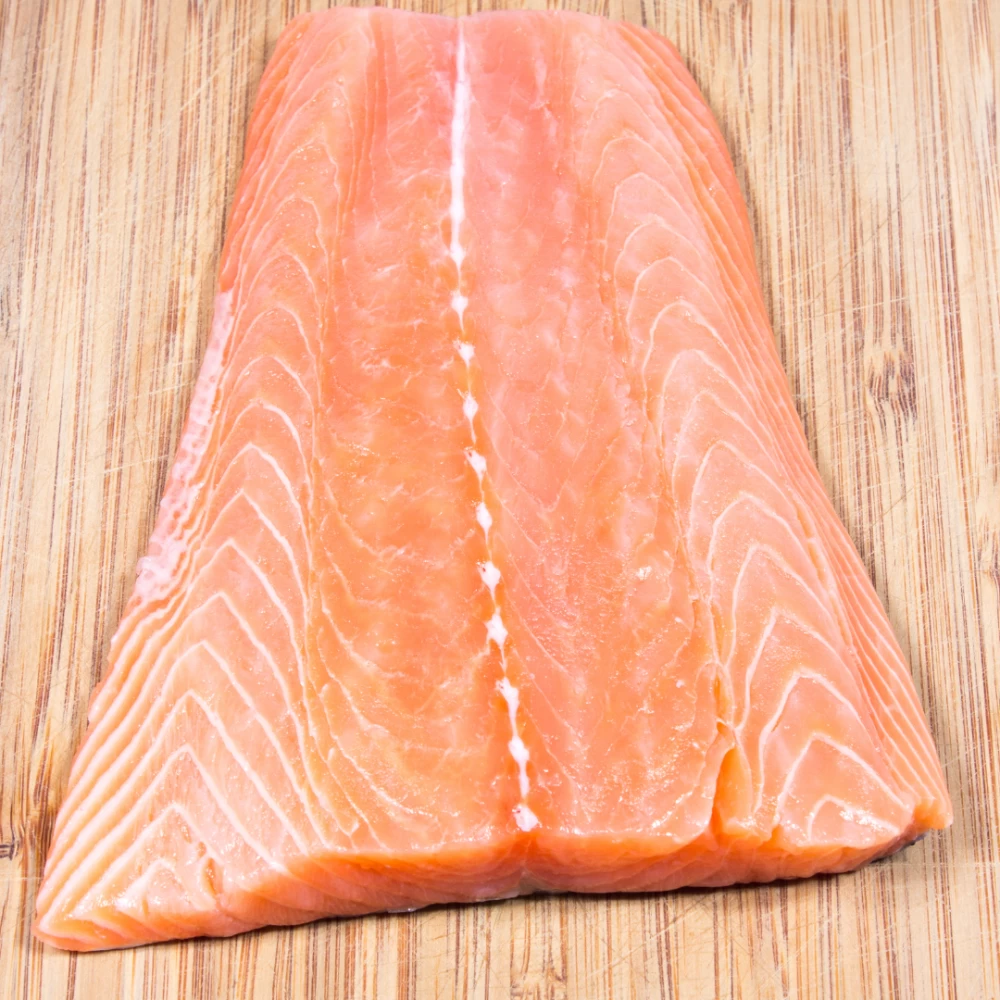
Fatty fish like salmon, mackerel, and sardines are rich sources of omega-3 fatty acids, renowned for their multifaceted health benefits. In the realm of hair care, omega-3s demonstrate their prowess by helping to regulate DHT levels. These essential fatty acids contribute to a healthy scalp, reducing inflammation and promoting an environment conducive to robust hair growth.
Omega-3 fatty acids, which are abundant in fatty fish such as mackerel, herring, and salmon, may promote healthier hair growth and density. But more research is required because there aren't many studies in this field. Vitamin D, which may play a role in hair growth, is not easily obtained from food sources, but fatty fish is one of them.
5. Tomatoes: Lycopene's DHT-Blocking Potential

Tomatoes, a kitchen staple, offer more than just culinary appeal. They contain lycopene, a potent antioxidant with potential DHT-blocking properties. Lycopene has been linked to inhibiting the activity of enzymes involved in the conversion of testosterone to DHT. Including tomatoes in your diet, whether fresh, cooked, or in the form of tomato-based products, can be a flavorful strategy for supporting your hair health.
Vitamins A and C, which are abundant in tomatoes, are important for healthy hair growth. Vitamins A and C work hand in hand to promote healthy hair by increasing the production of sebum and collagen, respectively, which hydrate the scalp and strengthen hair.
6. Flaxseeds: Fiber and Alpha-Linolenic Acid Combo
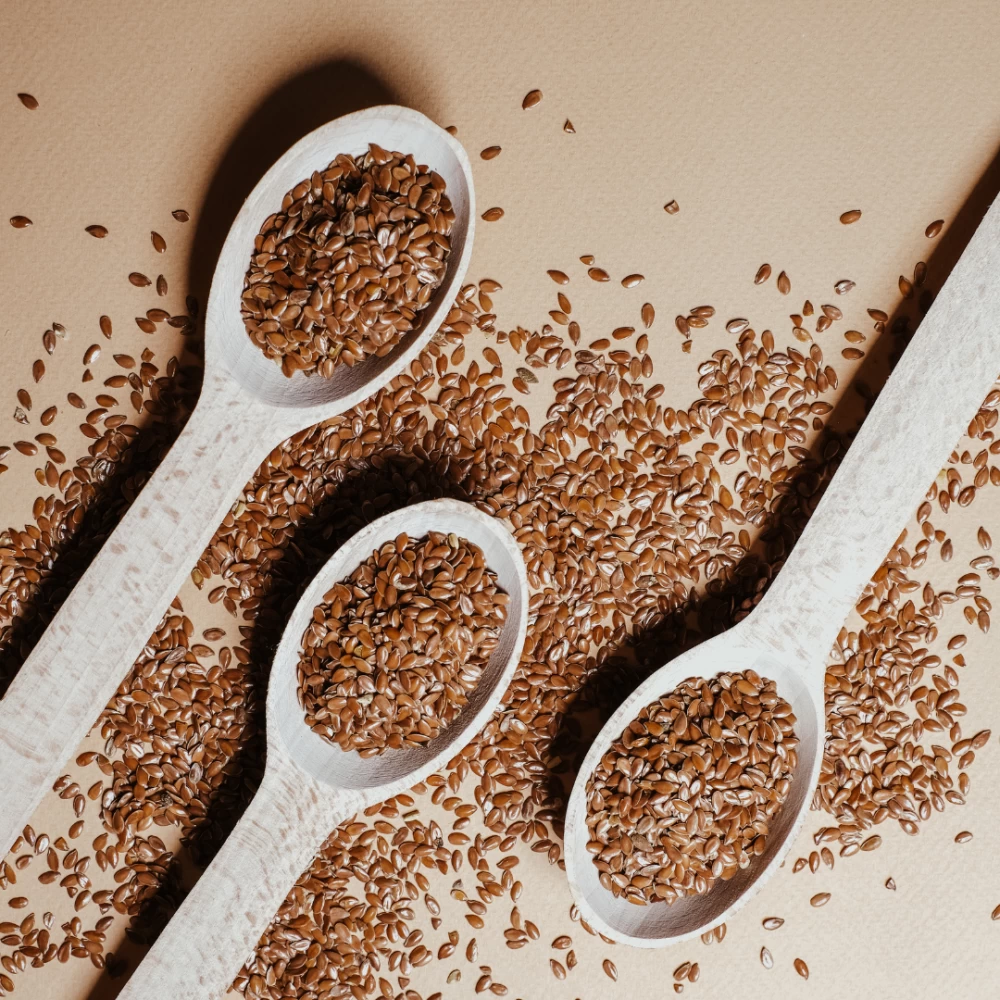
Flaxseeds, rich in both fiber and alpha-linolenic acid (ALA), contribute to a well-rounded approach to blocking DHT. The fiber aids in hormonal balance, preventing the spikes in testosterone associated with increased DHT production. Meanwhile, ALA, a plant-based omega-3 fatty acid, complements this by promoting a healthy scalp and hair follicles. Ground flaxseeds can be easily incorporated into various dishes or added to smoothies for a nutritional boost.
Flaxseeds, which are abundant in vitamin E and omega-3 fatty acids, can fortify hair and shield it from damage. In addition to promoting hair growth, flaxseeds can reduce inflammation in the scalp. Flaxseed oil has many uses for the hair, so combining the two oils will give you the best results.
In the quest for healthier hair, a holistic approach that includes attention to dietary choices can make a significant difference. These six DHT-blocking foods—pumpkin seeds, green tea, saw palmetto, fatty fish, tomatoes, and flaxseeds—offer a natural and nourishing way to support your locks from the inside out. By incorporating these nutrient-rich foods into your diet, you not only address the underlying factors contributing to hair loss but also enhance your overall well-being. Remember, healthy hair starts with a balanced lifestyle and a plate full of hair-loving nutrients.














